
Archive for April 2023TCB your PCV (PCV Valve Replacement)Posted April 30, 2023 11:23 AMYour gasoline engine goes through some exhausting work. Yes, it's truly exhausting, as in: it produces exhaust! And when your engine starts behaving like it's exhausted, such as running poorly or getting lousy fuel economy, the trouble may be something called a PCV valve. Did you know it's a series of explosions that creates the power in your engine? The spark plugs ignite a mixture of gasoline and air and BANG! A whole bunch of those and you're engine is humming away. Leftover vapors from those explosions go into your crankcase, which is also a place where engine oil goes. Those vapors still have a lot of unburned fuel in them, and if they had nowhere to go, they'd turn your oil into a thick mess called sludge, not good for a smooth running engine. Engineers came up with an idea. Re-direct those gasses building up in the crankcase into the engine's air intake and mix them with fresh air. That way the unburned fuel could go through the engine again and produce power. It also means the unburned fuel doesn't pollute the air. The part that makes that happen is called the Positive Crankcase Ventilation (PCV) valve. Besides reducing pollution and preventing the oil from turning to sludge, the PCV valve also relieves pressure in the crankcase, reducing the potential for oil to leak. One of the reasons you should get your oil changed as frequently as your vehicle's manufacturer recommends is that it helps reduce chances for problems with the PCV valve. After a while, the PCV valve can itself get gummed up and stick, and the driver may notice oil leaks, reduced power or engine hesitation. That's why it's important to make sure the PCV valve is operating like it should, and often it can be diagnosed during a visual inspection by our technicians. Replacing a PCV valve is usually quick and inexpensive. After it's done, your vehicle will run with the performance and fuel economy you're used to. Goodbye exhaustion! Auto Authority LLC Heat and your Tires (Tire Pressure Monitoring System)Posted April 23, 2023 10:10 AMWith hotter weather and brutal heat waves becoming more common, the pressure in your vehicle's tires goes up. After all, heat causes air to expand, and the air in your tires follows the laws of physics. Overinflated tires can reduce your vehicle's traction, cause a hard, punishing ride and make your tires wear out faster; all are important safety issues. Four out of every ten drivers rarely check tire pressure. Some rely on their vehicle's tire pressure monitoring system (TPMS) to keep an eye on proper tire inflation. But it's not designed to do that. TPMS is a safety feature that has been required on vehicles made in 2008 or later, using sensors in the wheels that alert you to tire pressure problems. That warning can be a light on your dash, a digital message or a readout of the pressure in each individual wheel. But a study showed that more than 40 percent of drivers don't even know what the tire pressure monitoring light symbol looks like! One looks like a horseshoe with an exclamation point in the middle. The other looks like an overhead view of your vehicle with the tires at all four corners. They may even show the inflation number (usually in pounds per square inch, or PSI). The TPMS is designed to alert you that your tires aren't inflated within certain parameters, but the system shouldn't be a substitute for frequently having your tires checked with a tire gauge. A TPMS light is only required to come on when a tire is 25 percent under the recommended tire pressure; by that time, you're driving on an unsafe tire and causing excessive wear. Have your vehicle checked regularly by our professionals, and that includes tire pressure checks. If you do see the tire pressure warning come on, have our service center look at it soon. You may have a tire with a problem or the TPMS system may not be working right. Either way, since your tires are the only contact your vehicle has with the road, your safety depends a great deal on your tires being in top shape and correctly inflated. Keep your tires properly inflated and your TPMS working to alert you of any problems. And that's not just a lot of hot air. Auto Authority LLC Rotation Explanation (Tire Rotation Patterns)Posted April 16, 2023 7:51 AMYou may notice that when you get your vehicle's oil changed, your service adviser may recommend that you have your tires rotated at the same time. The reasons are simple. That will allow your tires to wear more evenly and reduce the noise your tires make as you drive down the road. There are different ways of rotating tires. If your vehicle has non-directional tires and the same size wheels at each corner, here are the different rotation patterns. For all-wheel drive and rear-wheel drive vehicles, one is called the rearward cross pattern. The rear tires are moved to the front and stay on the same side of the vehicle, and the front tires are moved to the rear on the side opposite of where they were on the front. For all-wheel and four-wheel drive vehicles, use the X pattern. The rear tires are moved to the front on the opposite side of the vehicle, and the fronts are moved to the rear on the opposite side of where they were on the front. For front-wheel drive, there's the forward cross. The front tires are moved to the rear wheels on the same side of the vehicle as they were on the front and the rear tires are moved to the opposite side of the vehicle than they were on the rear. If you have directional tires (they only can be mounted in one direction) and the same size directional wheels, the rear tires are moved to the front on the same side of the vehicle where they were, and the front tires are moved to the rear on the same side they were on the front. And if you have tires with different sizes of non-directional tires and wheels on the front and rear, rotation will be from one side of the vehicle to the other. If you have a spare, it's put into the rotation using a forward cross or rearward cross. Yep, that's a lot to keep straight. So, we suggest letting your service advisor recommend the right rotation pattern for you at the interval your vehicle's manufacturer specifies. Auto Authority LLC Alleviate the Creaks and Squeaks (Chassis Lubrication)Posted April 9, 2023 7:09 AMIf your vehicle creaks and squeaks when you drive down the road, it may mean that some of the metal parts are rubbing against each other and need to be lubricated. Those could be parts of the suspension, steering system and the drivetrain. Years ago, most vehicles had to have their chassis (what you think of as the frame) regularly lubricated. Newer vehicles are made with what some call "lifetime lubrication," but there are still parts of the chassis that need to be maintained with lubricants. Your service advisor can help you know when that needs to be done. In your owner's manual, the vehicle's manufacturer lists components that need regular maintenance. Things like u-joints, steering joints, sway bars, bushings and joints in the suspension. Some of them may have that "lifetime lubrication," while others may not. When you bring your vehicle in for service, a technician will look for any parts that have grease fittings. They will inspect these components, clean the fittings so dirt and other contaminants won't be forced into the part and then lubricate them with a lubricant that meets the manufacturer's specifications. Sometimes a chassis lubrication is done at the same time as an oil change. That's also an ideal time for the technician to check other parts of your vehicle that may need attention. That could include greasing other parts such as the fuel door, trunk and door hinges, suspension springs and door latches. Times have changed since the days when a "lube" job was synonymous with an oil change. Depend on your owner's manual and advice from your service advisor to know when "grease" is the word—and appropriate for your vehicle. Auto Authority LLC Slipping into Fall (Driving with ABS Brakes)Posted April 2, 2023 7:58 AMAs the weather changes over from hot to colder, drivers will have to deal with more slippery streets. And it's important to know how to drive with the brakes you have on your vehicle. In the 1970s, anti-lock braking systems (ABS) started to be installed on vehicles and they've been a game changer for drivers. Most modern vehicles have ABS and it's important to know how to drive with them. In older vehicles without ABS, the driver applies the brakes by pushing down the pedal. That, in turn, sends braking pressure to all four wheels at once. But all four tires don't have the same traction because the road surface they're each on isn't exactly the same. ABS allows sensors to determine when particular wheels are slowing down more quickly. The ABS then reduces braking pressure to the wheels that are about to lock up. That way the wheel turns and the tires keep some grip. (You have to have grip to stop.) It's kind of what drivers try to achieve when they pump the older-style brakes without ABS. Another engineered feature of ABS is that it makes sure your front wheels will continue to rotate and maintain some traction. That's important because the front wheels are used to steer, and being able to steer gives a driver more control in a quickly-changing situation. So ABS is all about stopping as fast as the road surface will allow but at the same time enabling the driver to maintain control. ABS is designed for the driver to put steady pressure on the brake pedal and let the vehicle’s computerized system handle the braking. Pumping the pedal in a vehicle with ABS can defeat what the system is trying to do to help you maintain control. Because stopping techniques in a vehicle with ABS are different than those without, it’s important to know which brakes you have so you can operate them accordingly. If you have any doubt, consult your service advisor. ABS involves sophisticated technology and must be maintained in order for it to work properly. Your service advisor can recommend a maintenance schedule for you to follow so your ABS is always on the ready to help you stop when you need to. Auto Authority LLC | ||
SearchArchiveNovember 2011 (5)December 2011 (4) January 2012 (5) February 2012 (3) March 2012 (5) April 2012 (4) May 2012 (4) June 2012 (5) July 2012 (5) August 2012 (4) September 2012 (4) October 2012 (4) November 2012 (5) December 2012 (4) January 2013 (4) February 2013 (5) March 2013 (4) April 2013 (4) May 2013 (4) June 2013 (4) July 2013 (5) August 2013 (4) September 2013 (4) October 2013 (4) November 2013 (4) December 2013 (5) January 2014 (4) February 2014 (4) March 2014 (4) April 2014 (4) May 2014 (5) June 2014 (4) July 2014 (5) August 2014 (4) September 2014 (5) October 2014 (4) November 2014 (4) December 2014 (5) January 2015 (4) February 2015 (4) March 2015 (4) April 2015 (5) May 2015 (2) June 2015 (6) July 2015 (4) August 2015 (4) September 2015 (4) October 2015 (5) November 2015 (4) December 2015 (3) February 2016 (2) March 2016 (4) April 2016 (4) May 2016 (5) June 2016 (4) July 2016 (5) August 2016 (4) September 2016 (4) October 2016 (5) November 2016 (4) December 2016 (4) January 2017 (5) February 2017 (4) March 2017 (4) April 2017 (4) May 2017 (4) June 2017 (4) July 2017 (4) August 2017 (5) September 2017 (3) October 2017 (5) November 2017 (4) December 2017 (3) January 2018 (5) February 2018 (3) March 2018 (4) April 2018 (5) May 2018 (3) June 2018 (4) July 2018 (5) August 2018 (4) September 2018 (5) October 2018 (4) November 2018 (4) December 2018 (1) March 2019 (3) April 2019 (33) May 2019 (4) June 2019 (5) July 2019 (4) August 2019 (4) September 2019 (5) October 2019 (4) November 2019 (4) December 2019 (5) January 2020 (5) February 2020 (4) March 2020 (5) April 2020 (2) May 2020 (2) July 2020 (1) August 2020 (5) September 2020 (4) October 2020 (4) November 2020 (5) December 2020 (4) January 2021 (6) February 2021 (4) March 2021 (4) April 2021 (4) May 2021 (5) June 2021 (4) July 2021 (4) August 2021 (4) September 2021 (4) October 2021 (5) November 2021 (3) December 2021 (5) January 2022 (6) February 2022 (4) March 2022 (4) April 2022 (4) May 2022 (5) June 2022 (4) July 2022 (5) September 2022 (4) October 2022 (5) November 2022 (4) December 2022 (4) January 2023 (5) February 2023 (4) March 2023 (4) April 2023 (5) May 2023 (4) June 2023 (4) July 2023 (5) August 2023 (4) September 2023 (3) October 2023 (1) January 2024 (1) February 2024 (4) April 2024 (1) May 2024 (4) June 2024 (5) July 2024 (3) | CategoriesOlder Vehicles (4)Tires and Wheels (40)Cooling System (20)Tire Rotation and Balancing (4)Service Intervals (9)Fuel System (48)Maintenance (60)Cabin Air Filter (8)Timing Belt (7)Drive Train (10)Fluids (19)Service Standards (13)Transmission (11)Air Conditioning (18)Parts (8)Monitoring System (3)Inspection (11)Automotive News (11)Dashboard (3)Shocks & Struts (10)Safety (7)Steering (15)Wheel Bearings (2)Alignment (17)Fuel Economy (11)Battery (21)Windshield Wipers (9)Tire Pressure Monitoring System (1)Brakes (23)Exhaust (12)Headlamps (7)Winter Prep (7)Check Engine Light (6)Diesel Maintenance (2)Engine Air Filter (4)Diagnostics (5)Keys to a long lasting vehicle (4)Differential Service (3)Suspension (3)Serpentine Belt (6)Auto Safety (6)Emergency Items (1)Fuel Saving Tip: Slow Down (2)What Customers Should Know (82)Trip Inspection (4)Alternator (6)Oil Change (8)Customer Detective Work (1)Safe Driving (1)Spark Plugs (2)Tires (11)Winter Tires (1)Water Pump (2)TPMS (3)Fuel Pump (1)Brake Service (5)PCV Valve (2)Transfer Case Service (1)Shocks and Struts (1) | |
Partners
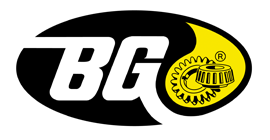
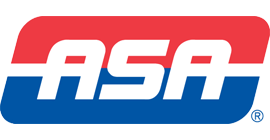
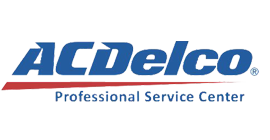

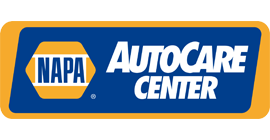
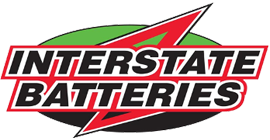


What our clients are saying about us
We have established longterm and stable partnerships with various clients thanks to our excellence in solving their automotive needs!
Absolutely the best mechanic I have ever been to in my 40 years on this planet. Honest, trustworthy, and reliable. I will definitely be back.

These Guys (and Gals!) are great. Love them. Trust them. If you are looking for a REPUTABLE mechanic for your car or truck, look no more. Just go there and see what I mean.



